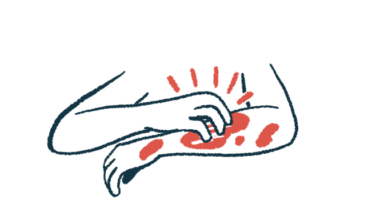Coping with high-functioning anxiety and special needs parenting
Intentional self-care and finding support are crucial

My therapist says I have “high-functioning” anxiety. This is not news to me. I’m thankful to have confirmation of what I’ve known for decades.
In childhood, my high-functioning anxiety stemmed from doing everything my parents told me to do, as I was constantly afraid I might mess up. I’d search for my self-worth in being “good.”
In high school, I demanded nothing but the absolute best of myself academically. I didn’t just need to get an “A”; my grade needed to be scored a 95 or above. I nearly killed myself to graduate fourth in my class.
After losing a child, having a child born with epidermolysis bullosa (EB), and parenting a child with severe attention-deficit/hyperactivity disorder, sometimes I feel like my anxiety looks like a whole bunch of half-crazy. I function. I get a lot done. But my brain is pinging from one thing to the next.
It looks something like this:
I want to make bacon. I preheat the oven and get a pan. I go to the garage fridge to get bacon and notice that the dogs need food. I detour and get their food container from underneath the cabinet. It’s empty. I head to the garage to fill it up, come back in and set it on the table, completely forgetting to feed them. What was I doing originally? No clue until the oven beeps to say it’s preheated. I remember the bacon. I put the bacon in the oven and notice the table needs to be wiped down. I spray it with cleaner and think it probably needs to sit a minute before wiping. I head outside to get the package off the porch. I notice the plants need to be watered. I grab the watering can and water the plants. I come in. Without the package. The dogs are pawing their bowls. I still haven’t fed them. I feed them and notice they need water. I take the first bowl to the laundry room to fill up. Oh, there’s a load of laundry that needs to be switched to the dryer. I go to switch it and there are dry clothes that need to be taken out. I take them to the living room and start folding. I completely forget to switch over the wet laundry or water the dogs. The spray on the table has completely dried. The bacon is burning.
Putting out the fires
You get the idea. After almost 20 years of marriage, my husband has completely given up on me closing kitchen cabinet doors.
Asking a person who already has anxiety to be a mother and a caregiver to a child with high medical needs takes the crazy to a whole new level. I try to imagine and anticipate every harm-causing or otherwise problematic scenario that could possibly happen and head it off at the pass.
On the first day of high school for my son Jonah, who has EB, I was not the one to help him put on his shoes. Meaning that someone else did it and didn’t ensure that his laces were double-knotted.
We texted him later in homeroom to check on him. “My shoe is untied and I don’t know what to do,” he texted back.
Because of his constant hand wounds and limited fine motor abilities, he can’t tie his own shoes. He was sitting there panicked, not wanting to tell anyone he needed help, and especially not why. I texted him back and told him to text his nurse to ask her to meet him outside, then to tell the teacher he needed to use the restroom. She met him outside and got it taken care of. I put out 50 of these “little fires” every day.
Anxiety, combined with special needs parenting, means constant hypervigilance and becoming very easily overstimulated. When I walk in from work, Jonah, his brother, Gideon, Jonah’s nurse, and my mother-in-law are at my house. Immediately, they begin filling me in on the day, asking questions, telling me about phoned-in refills, listing what homework needs to be finished, and reminding me what else is coming up for the week. No one is doing anything wrong, of course, but it is a daily struggle for me to walk in the house and face it.
Therapy and medication are amazing, and I’m learning strategies to help me cope. Guided breathing, perspective shifting, prioritizing, and intentional self-care are all things I’m working on. I’m certainly a work in progress.
I know I’m not the only one who deals with this kind of thing. We’re all facing our battles. I’m so curious to know if there are any other special needs parents out there reading this column who are fighting this same fight. I’d really love to hear from you. It’s so wonderful when we can share our burdens and know we’re not alone. You are not alone.
Take it from this half-crazy lady.
Note: Epidermolysis Bullosa News is strictly a news and information website about the disease. It does not provide medical advice, diagnosis, or treatment. This content is not intended to be a substitute for professional medical advice, diagnosis, or treatment. Always seek the advice of your physician or other qualified health provider with any questions you may have regarding a medical condition. Never disregard professional medical advice or delay in seeking it because of something you have read on this website. The opinions expressed in this column are not those of Epidermolysis Bullosa News or its parent company, Bionews, and are intended to spark discussion about issues pertaining to epidermolysis bullosa.








Leave a comment
Fill in the required fields to post. Your email address will not be published.